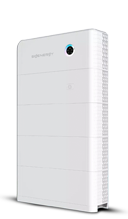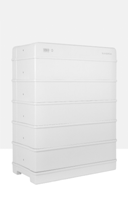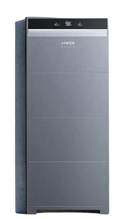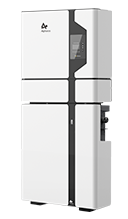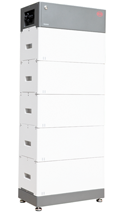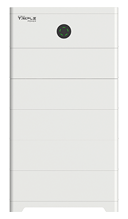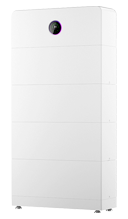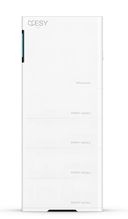The Top 10 Best Solar Battery Brands According to Australian Reviewers
Last Updated: 13th Feb 2026
The Top 10 list below is ranked and kept up-to-date based on the number of reviews from Australian homeowners who have actually installed these batteries and lived with them, so you’re seeing brands that are both popular and well-rated in real Aussie homes. You can click on the images or ratings to read each brand’s review page.
Battery prices shown below exclude installation and assume you qualify for the federal battery rebate, which only applies when the battery is paired with solar.
#1 Sigenergy
Price range – $5,000 → $19,400
Price per kWh range – $393 → $415
Rating – ⭐ 4.9 based on 846 ratings
Pros
✅ Sensibly priced
✅ Modular, expandable
✅ Single- and three-phase models available
✅ Blackout protection
✅ Grid connect or off-grid
✅ Well supported
✅ Very detailed monitoring
Cons
❌ Issues reported relating to overheated terminals, melted plugs and burnt out wiring on some improperly installed single-phase inverter models.
❌ Is not open about problems and responds negatively to criticism
❌ Installation may be a bit fiddly in terms of fixings
#2 Sungrow
Price range – $5,000 → $19,400
Price per kWh range – $347 → $470
Rating – ⭐ 4.9 based on 793 ratings
Pros
✅ Well supported by onshore technical staff
✅ Great value
✅ High voltage units mean the battery doesn’t have to be right by the inverter, which helps with meeting Australia’s strict battery location requirements.
✅ Great connectivity between compatible inverters to build bigger systems
✅ The new UI on the app looks better
✅ Great deal of detail available on the app for electrical nerds & problem diagnosis
✅ Easily stackable batteries in robust alloy housings to incrementally increase storage to a whopping 102 kWh
Cons
❌ Occasionally tech support is snowed under and/or diverts to an answering machine in Japanese
#3 Anker Solix
Price range – $6,000→ $14,000
Price per kWh range – $466.67 → $600.00
Rating – ⭐ 5.0 based on 198 ratings
Pros
✅ C5-M corrosion class rating suitable for coastal locations.
✅ Lithium-iron phosphate cells.
✅ Six different modes.
✅ Backup power in a blackout.
Cons
❌ A newish product – needs more time in Australian conditions.
❌ Only the hybrid X1 can charge off solar panels in a blackout.
#4 Alpha-ESS
Price range – $2,400 → $8,200
Price per kWh range – $374 → $1,051
Rating – ⭐ 4.5 based on 435 ratings
Pros
✅ The low price point.
✅ A nice looking battery. Everything is behind a unified façade which comes away easily to make for neat installation and easier servicing.
✅ The cover arrangement lets you remove a whole brick from the wall and so feasibly run cables in a wall cavity.
✅ Models available for DC coupled solar, with blackout protection and “black start” if you run the battery flat overnight.
✅ Popularity means they’re likely supported by (Virtual Power Plants) VPPs or power-sharing software.
Cons
❌ Warranty support is proven and acknowledged to be embarrassingly lacklustre.
❌ Some AlphaESS models have dismal surge capacity during a blackout.
❌ Some models don’t offer blackout protection.
❌ “Some models” means there’s a lot of different options to be confused with.
❌ Technical support is poor in our experience.
❌ Proper monitoring requires two consumption meters in many cases.
❌ Review ratings are in the low four-stars (but trending better).
❌ At the bottom end of the market in terms of price, they are more likely to be sold by shonks who don’t offer decent after-sales support. Choose your installer wisely!
#5 Tesla Powerwall 3
Price – $8,650
Price per kWh – $640.74
Rating – ⭐ 4.9 based on 263 ratings
Pros
✅ Tesla’s Powerwall 2 has a good track record
✅ High continuous power output of 10kW (5kW in WA)
✅ Up to 20kW of solar panel capacity
✅ Dry contact available for basic energy management like hot water
✅ Flood resistant
✅ Relatively compact
✅ Excellent monitoring app with notification for dynamic export limits
✅ “Opticaster” software available for energy management
✅ Good customer service
Cons
❌ Tesla makes quality batteries but they’re not low cost
❌ It can be noisy
❌ 5kW charging may curb the ability to use time-limited tariffs
❌ 5kW rated units do not have 10kW backup capacity
❌ Elon Musk
#6 Fox ESS
Price range – $3,600 → $6,900
Price per kWh range – $212 → $387
Rating – ⭐ 4.8 based on 88 ratings
Pros
✅ Billion-dollar company.
Cons
❌ Still awaiting more installer/customer feedback.
#7 BYD
Price range – $4,484 → $9,276
Price per kWh – $410 → $763
Rating – ⭐ 4.9 based on 242 ratings
Pros
✅ Excellent quality as used by Fronius
✅ Compatible with many brands of inverters
✅ Range of options in high and low voltage
✅ High power
✅ Scaleable storage which can be increased incrementally
✅ Genuinely stackable with automatic plug and play connections
✅ Supportive company that has recently made announcements well in advance of discontinuing 10 year old models
Cons
❌ 50°C Operating temperature limit is not as high as some batteries
#8 SolaX Power
Price $4,625
Price per kWh – $797
Rating – ⭐ 5.0 based on 85 ratings
Pros
✅ Modular
✅ Comparatively cheap
Cons
❌ Must use Solax hybrid inverters
#9 GoodWe
Price – $3,400 → $13,400
Price per kWh– $279 → $354
Rating – ⭐ 4.9 based on 78 ratings
Pros
✅ One of the cheaper home battery brands based on cost per warranted kWh
✅ Automatic reboot after under-voltage cutout
✅ Backup capabilities (for Lynx, a compatible GoodWe hybrid inverter is required)
Cons
❌ Lynx Series only compatible with certain GoodWe inverters
#10 ESY Sunhome
Price range – $3,150 → $5,900
Price per kWh range – $202 → $648
Rating – ⭐ 4.7 based on 45 ratings
Pros
✅ Prompt technical support
Cons
❌ Still relatively new to Australia so can’t be sure of long-term performance
These 10 brands have been ranked based on the highest number of positive reviews received over the past six months. Learn more about how we determine our rankings.
You can explore more options in our home battery review section. Read everything you need to know to buy a solar battery. When you’re ready, you can request three free quotes for battery installation by installers we have thoroughly vetted.

